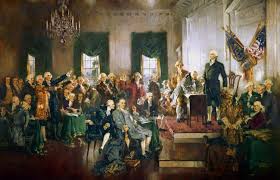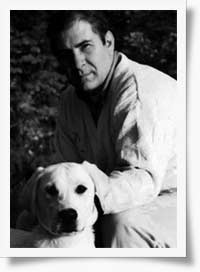 The word ambition comes from the Latin word “ambire,” literally the act of soliciting votes. It has come to mean a desire to achieve a particular end. That end may be an inordinate desire for personal advancement, like that of the many of the corporate executives who have been in the news so much of late, or something more praiseworthy.
The word ambition comes from the Latin word “ambire,” literally the act of soliciting votes. It has come to mean a desire to achieve a particular end. That end may be an inordinate desire for personal advancement, like that of the many of the corporate executives who have been in the news so much of late, or something more praiseworthy.
Ambition seeks opportunity and thrives on liberty. “Without ambition, one starts nothing. Without work, one finishes nothing,” Ralph Waldo Emerson wrote.
It’s hard to imagine America without ambition. “The first thing which strikes a traveler in the United States is the innumerable multitude of those who seek to emerge from their original condition,” de Tocqueville said. “No Americans are devoid of a yearning desire to rise…All are constantly seeking to acquire property, power, and reputation.”
Little has changed in the nearly 200 years since de Tocqueville made that observation. The desire to achieve is everywhere in America, the pursuit of happiness our primary preoccupation. No longer are men born with their boundaries predetermined. In America, a man’s possibilities would be limited only by his aspirations. To this day, Americans are constantly striving to better themselves and improve their situations.
While the pursuit of happiness drives much of our day-to-day lives, to be a blessing rather than a curse it must exit in the context of compassion, spirituality, responsibility and a governing structure designed to balance these interests. The neatness of this trick is one of the reasons William Gladstone, one of the most respected of British Prime Ministers, called the Constitution of the United States “the most wonderful work ever struck off at a given time by the brain and purpose of man.”
Who were these men?
Jefferson called the founding fathers “an assembly of demi-gods.” They may not have been that, but they are certainly the ablest group of Americans ever assembled for any purpose in the history of our Republic. They were fifty-five men, composing the elite of government, business, and the professions in their own states at the Constitutional Congress. Their average age was 42 at a time when the average person lived to 37. More than half of them were lawyers. Slightly more than half – 29 – were college graduates.
The founders spent eight weeks examining ancient history and modern Europe looking for a model form of government to adopt. They found, Benjamin Franklin said, “only the seeds of their dissolution.”
For just under seventeen weeks, these men struggled to structure a workable balance of power and leadership while protecting individual rights and liberty. After weeks of debate, James Madison seized the initiative and provided the solution that forged the Union and gave us our Constitution – now the oldest written constitution in the world.
Madison was a practical idealist. He was suspicious of other systems of government and skeptical of human nature. “If men were virtuous,” he reminded the Convention, “there would be no need for governments at all.”
Rather than try to tightly structure the relationship between various constituencies in the United States, Madison made the profound suggestion that chaos might succeed where control would fail. The solution, he argued, was to make the separate branches of government responsible to separate constituencies, forcing them to collide and check each other.
Madison’s notion that a collision of interest is not only natural to governments but the source of their health was disturbing to many around him. He responded by saying, “Ambition must be made to counteract ambition. The interest of the man must be connected with their constitutional rights.”
One hundred years later, Justice Oliver Wendell Holmes said it this way, “A constitution is made for people of fundamentally differing views.” This idea, that competing ambitions create good government, is the central principle of the constitution. It is seen in the balance of power between the states and the federal government, as well as in the diffusion of power among the three branches of government.
It is also the safety valve for our economic system. The American Republic and American business are Siamese twins. They came out of the same womb at the same time and were born with the same values. They are so closely connected they cannot be separated without peril. They can only exist in the context of freedom, compassion, equality, and responsibility.
As Adam Smith said in describing the free enterprise system, “Every man, as long as he does not violate the laws of justice, is left perfectly free to pursue his own interest in his own way, and to bring both his industry and capital into competition with those of any other man, or order of men.”
Ambition is the germ from which all achievement, wealth, and advancement grows, but it is worth remembering that wealth alone will not bring happiness. There is abundant evidence of that fact. Some of the wealthiest people in America are among the unhappiest people on the planet. At the end of his life, Napoleon, at one time the most powerful man on earth, wrote in his diary that he had only experienced five days of happiness in his entire life.
Goodness always precedes greatness. Happiness comes from serving the purpose for which we are intended, fulfilling our potential, and, in so doing, finding God’s will for us. In the final analysis, the measure of a man is not how many servants he has, but how many people he serves.


Perfect timing. Thank you, Bill!!
Nice, Bill. Closing line should be a bumper sticker.